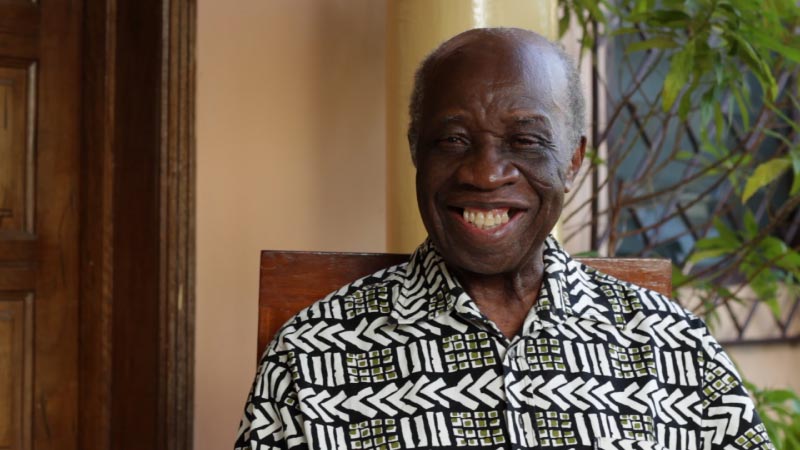Co-evolution
The pace at which technological advancement takes place here is gigantic.
I always thought I went through a lot of technological developments in my lifetime so far, let alone my grandmother. Over here, people my age went from no electricity to smartphones. All the way up North in Bolgatanga I met Professor David Millar and two of his research students Babatuude and Molachi. Professor Millar took on the giant task of setting up his own University focussing on the co-evolution of modern science and indigenous sciences. Something he strongly advocates.

But before we could really sit down and talk about this, he advised me to visit a local indigenous village first. So off I went with Babatunde as my guide.
We met Molachi who grew up and lives in the village and he took us to the Chief. We walked over to a small gathering place in the shade bordered by a mud hut on one side and fields on the other sides.
In front of a few large tree trunk benches was a chair on which the Chief was sitting, by himself. I was introduced and I was kindly invited to ask the questions I wanted to ask and I was allowed to film as well.
At some point all women present in the village gathered in the shade and stimulated by the approving gaze of the Chief they told me everything they know about food conservation. As it turns out, they are able to keep their food for months in this enormous heat, without a fridge! (It is very hot here, I can assure you.)

Even though modern technologies are quickly gaining ground, especially with the young people, I think there is a unique opportunity here. My generation of people in villages like these do know both the before and after situation from direct experience and have a very good view on the pros and cons of both situations.
The people I met here in Bolga are very eager to preserve the traditional knowledge for the next generations and to create a system in which both modern science and indigenous sciences can benefit from each other’s strengths. Because neither are entirely perfect nor entirely bad. This is a co-evolution that might well fuel the future of problem solving all over the world.




tahiru sulemana says:
I also believed the traditional methods of preserving food.Make research on how to preserve dawadawa
Comments are closed.